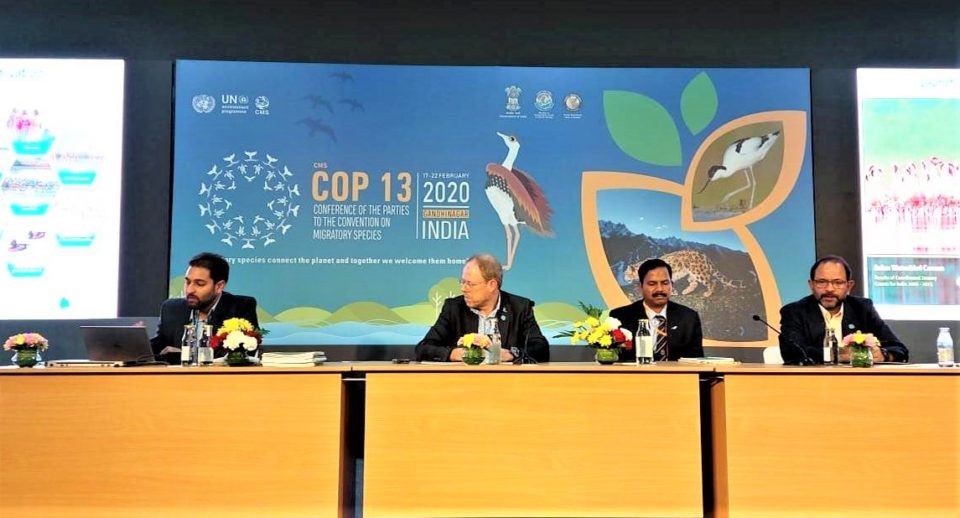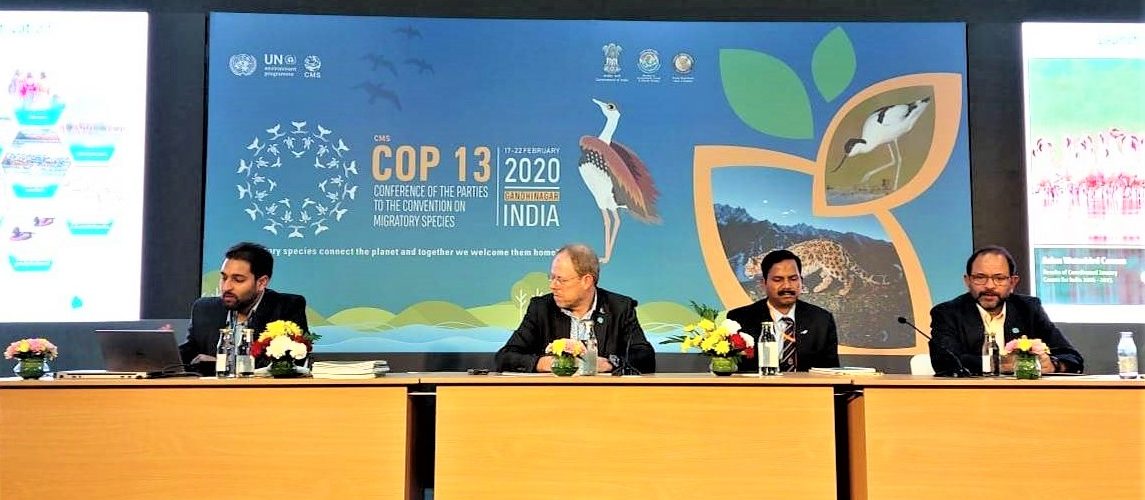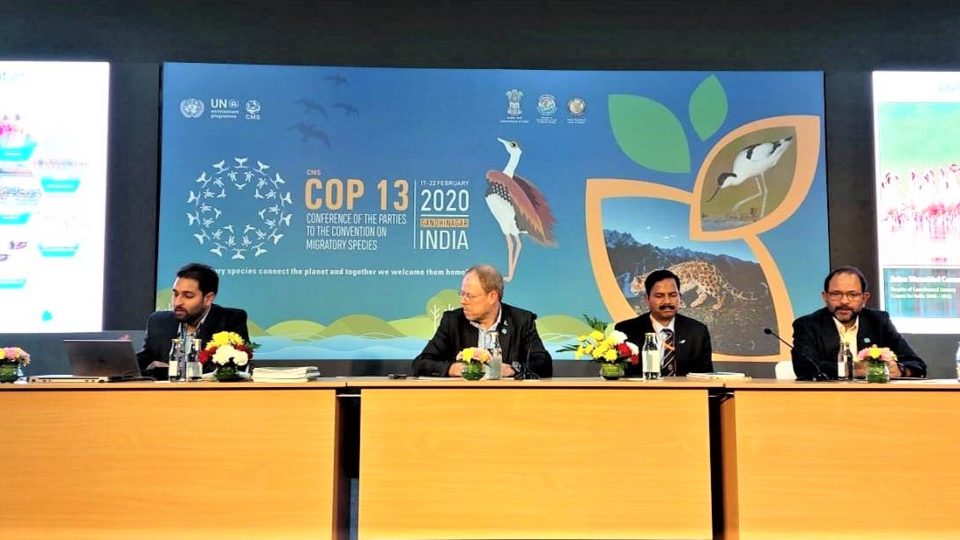Wetlands International organised a side event during The thirteenth meeting of the Conference of the Parties to the Convention on the Conservation of Migratory Species of Wild Animals (CMS), held at Gandhinagar. Christened as ‘Safeguarding Connectivity: from Bird Data to Management Tools’, the session saw participation not just from national government representatives, secretariats of conventions and various stakeholders engaged in conservation of biodiversity, Asian Waterbird Census (AWC) state and national coordinators, but also active birders, media personnel and wildlife enthusiasts.
During the session, significance of management models including the new global “Waterbird Population Portal”, “Critical Site Network Tool” and waterbird monitoring systems such as the International Waterbird Census (IWC) for effective decision making on conservation policies and plans was emphasized by experts from Wetlands International.

Panellists at the Session, L-R : Mr. Dhruv Verma, Mr. Ward Hagemeijer, Mr Rakesh Jagenia and Dr Taej Mundkur
The highlight of the session was launch of the latest IWC report, “Asian Waterbird Census: results of Coordinated January Counts for India 2006-2015”, in the august presence of Mr Rakesh Kumar Jagenia, Deputy Inspector General (DIG), Ministry of Environment, Forests and Climate Change, Government of India, who was also presented with the first copy of the report by Dr Taej Mundkur, IWC global coordinator, Wetlands International. The DIG appreciated efforts of the AWC network, and encouraged the coordinators to work closely with state forest departments for effective waterbird census and support national and international conservation commitments to multilateral environmental agreements such as Ramsar Convention and CMS.

